Waleed Mohsen is the Co-Founder and CEO of mynurse.ai, an AI-guided digital health program for seniors that was recently named a 2020 UCSF Rosenman Innovator. Mynurse.ai offers vitals monitoring devices and live coaching support from expert clinicians to help seniors with chronic conditions live their best lives. They’re on a mission to make healthcare human. Waleed has a background working with some of the leading health systems and medical institutions in the country in his business development roles at Siemens and Cisco and studied Biochemistry at UCSD.
What does “entrepreneurship” mean to you?
Waleed Mohsen: Entrepreneurship is a venture into the unknown. You’re creating a product or service that has never existed before. There’s a lot of discomfort in that because you don’t know if it’s going to work! It’s something that requires constant iteration based on how the market is responding to your product, as well as a willingness to set aside your initial assumptions. To me, being a successful entrepreneur means finding a balance between building a product that people want and a sustainable and profitable company.
How did your company come to be?
WM: Both of my grandfathers died of heart attacks at a young age, likely due to chronic conditions that run in my family. The notion that it could happen to me too scared me. So I started mynurse.ai to support the services that could’ve benefitted my own grandfathers as well as other seniors with chronic conditions who need ongoing preventive health support.
How has your business changed in response to the COVID-19 pandemic?
WM: Solutions that help support seniors—who face the highest risk from COVID-19—from the safety of their homes are more critical than ever. As such, we have seen increased demand for our services. At the same time, we lost half of our clinical staff due to the demands of homeschooling young children. It forced us develop ways to enroll members remotely and create a whole new hiring and onboarding process to backfill those staff we lost while preparing for the demand we saw.
What is your proudest and darkest moment so far? Share a key high and a key low from your journey if you can.
WM: My proudest moments have been promoting staff and celebrating work anniversaries. Working in start-ups isn’t easy and people have all sorts of choices when it comes to where they want to work. So, it really means a lot to celebrate a work anniversary or promote someone who’s excited to be there. Seeing someone grow professionally is incredibly rewarding and I don’t think I’ll ever get tired of that. My darkest moments involve existential questions of the company. Will we raise enough money to stay in business? Do we have a viable business model? The weight of those questions compounds with every new hire, customer, and previous investor I don’t want to let down.
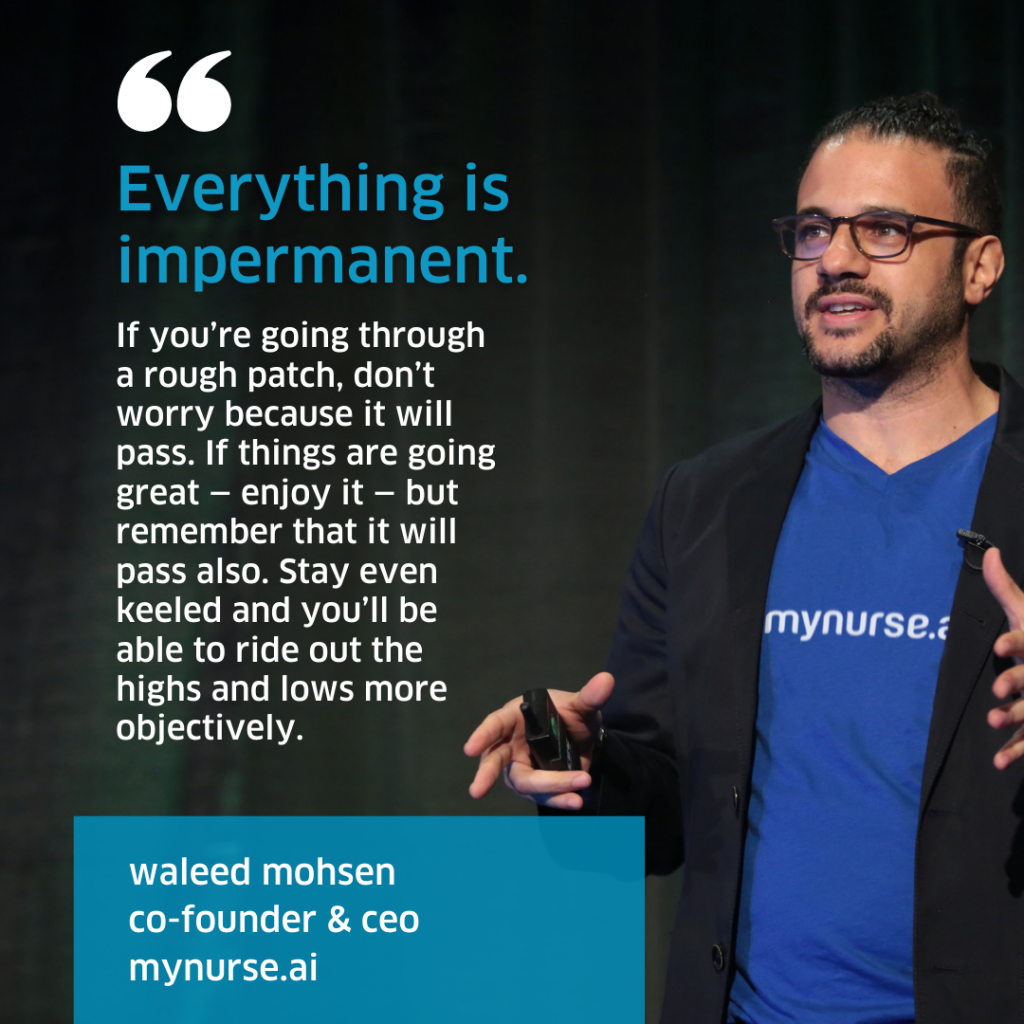 How is your company changing the landscape?
How is your company changing the landscape?
WM: Seniors will typically visit their doctor’s office about 5 times a year. That leaves about 6,000 hours during which they have little to no support on how to properly take their medication, what diet can help them stay healthy and what activities will keep them out of the hospital. We help seniors live a healthier, more independent lifestyle while keeping them connected to their doctor from the safety of their homes. We do this by delivering the first digital health program designed specifically for seniors, which provides them with vitals devices and live, one-on-one health coaching paid by their insurance.
What do you wish you knew when you started? Is there anything you would do differently?
WM: It’s okay to make decisions when you don’t have all of the information. In start-ups, the reality is that you have very limited information to act upon. I think I took too long to make decisions because of it and would’ve been fine deciding sooner and shifting course as needed.
What advice/credo do you live by as you grow the business / what is your professional and personal mission statement?
WM: Our “Prime Directive” is to treat our members as if they are our own family or loved ones. How quickly would you respond? How diligent would you be in designing a workflow if you knew it could help the people you care about live a longer, healthier life?
Where do you find inspiration when faced with challenges?
WM: Two places: our member success stories. These are stories members and their families have shared after we’ve helped to prevent a major health event. They’re quite moving and have always helped me get through challenging times. The second is hearing from other entrepreneurs via podcasts, books, or segments like this on how they found resiliency in their darkest times. I find it inspiring to hear others overcome adversity as I look to overcome mine.
What does “success” look like for you? What do you think will help you achieve it?
WM: We operate with a “double bottom line” as they say. For us, it’s not just about the business metrics like growth, profitability and revenue. We want to know that we’ve made a difference in our members’ lives, so we also measure ourselves on things like helping members avoid ER visits and improve their blood pressure/blood sugar and health engagement.
Has personal or professional “success” changed for you since the COVID-19 pandemic?
WM: While the problems we were solving were prevalent before COVID, COVID certainly made solutions that support seniors from the safety of their homes more critical than ever. We were in a strong position to help and we continue to keep top of mind our mission of helping seniors live healthier, independent lives.
What’s it like to work alone or with your partners? What advice do you have for fellow entrepreneurs about building and leading teams?
WM: I’m grateful to be working with such an amazing group of individuals. That’s not to say that things are always perfect. But if you’ve hired the right folks, you know that everyone has the right intentions at heart and that leading a team means it’s on you to make sure people have room to be autonomous, collaborative, and honest.
Many entrepreneurs continue to perfect their daily routines to support their work and greater vision; would you mind sharing your morning routine or a regular ritual that grounds your work each day? How has it changed in recent months?
WM: A few times a week I’ll wake up to a short run/bike ride followed by meditating with my partner. Twice a week in the afternoon we do yoga together.
What keeps you motivated during this time?
WM: I would again attribute my motivation to our member success stories.
What kind of an entrepreneur do you want to be known as, as in, what do you want your legacy to be?
WM: I want to create a company that meaningfully benefits society. I want to be able to say that I left this world in a better place than I came into it and I believe myNurse.ai is my path to realizing that wish.
What is a quote or some words of wisdom that help get you through the tough days?
WM: Everything is impermanent. If you’re going through a rough patch, don’t worry because it will pass. If things are going great—enjoy it—but remember that it will pass also. Stay even keeled and you’ll be able to ride out the highs and lows more objectively.
Who are the people who have mentored or influenced you in your life or career? How has their influence changed the trajectory of your entrepreneurial journey?
WM: How much time do you have? There are so many to list. I’m so grateful to all of the folks who helped me along the way who probably believed this venture was not going anywhere but helped anyway. It’s fun to see it in other entrepreneurs I’ve come across and feel it’s my duty to pay it forward and help them out in the same way I received help.
Do you have someone you’d like to nominate to be profiled in our Faces of Entrepreneurship series? Please let us know by emailing media@thecenter.nasdaq.org.
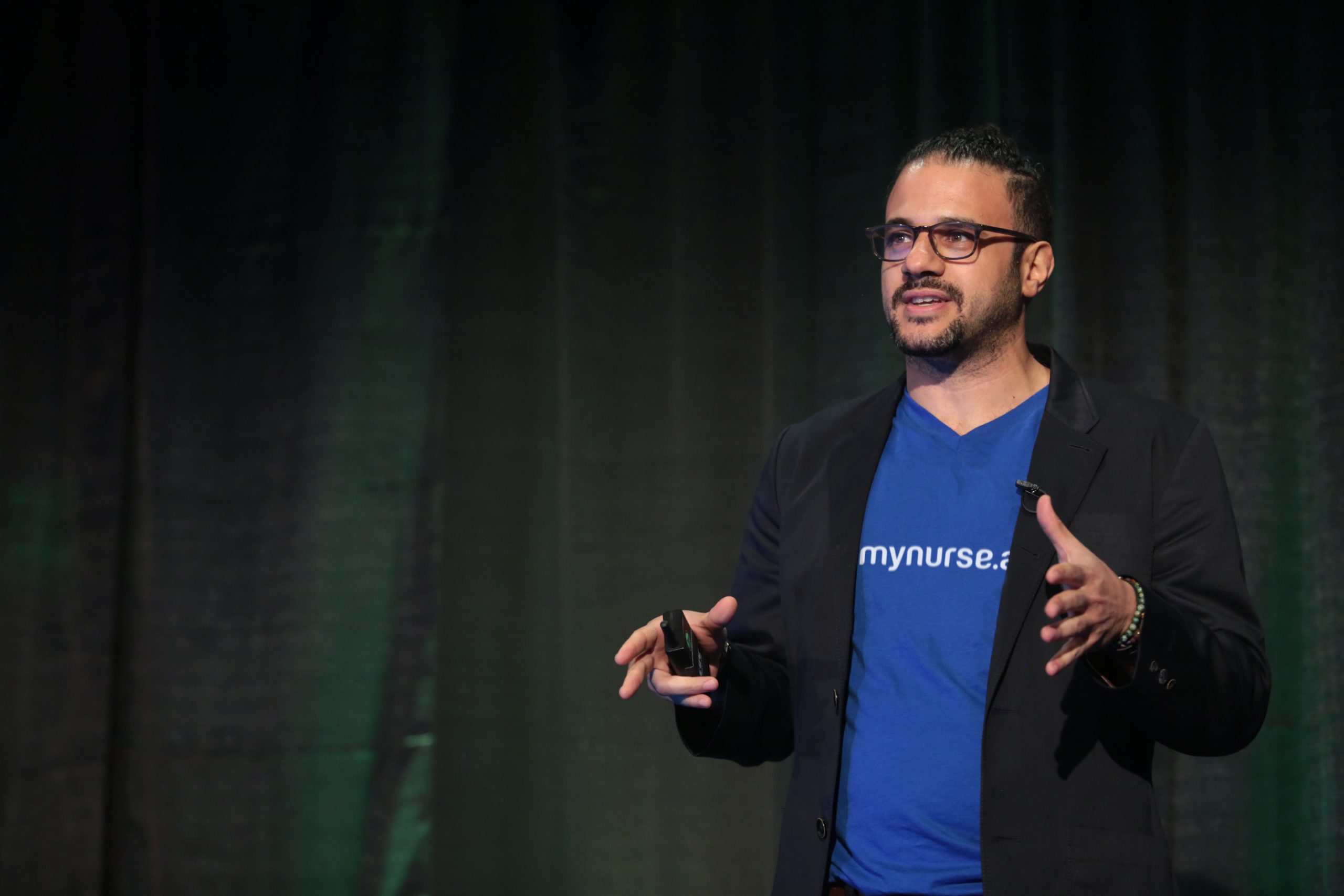
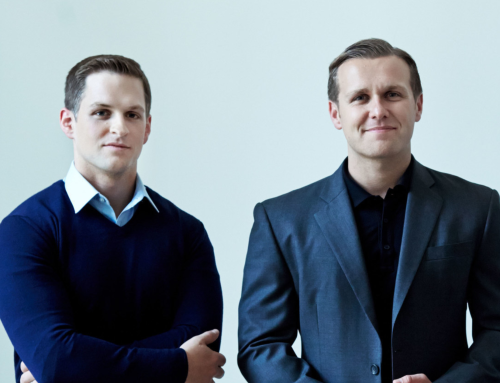
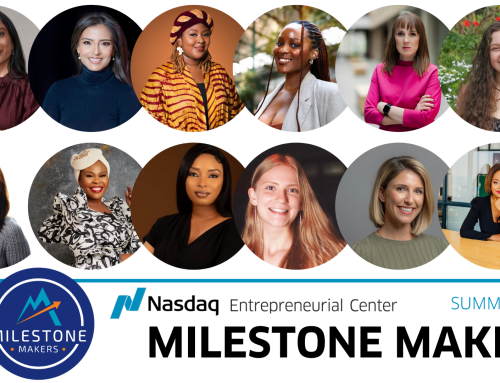
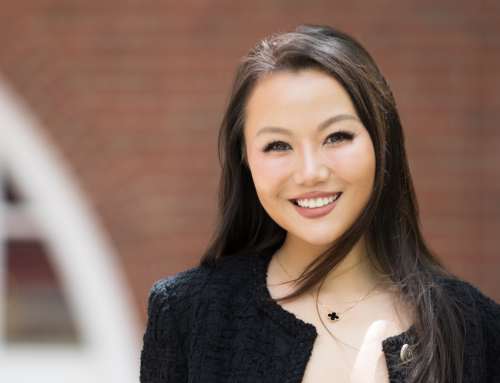
Invite a Friend
Close